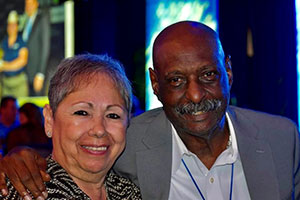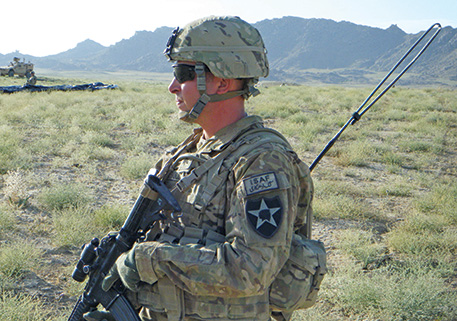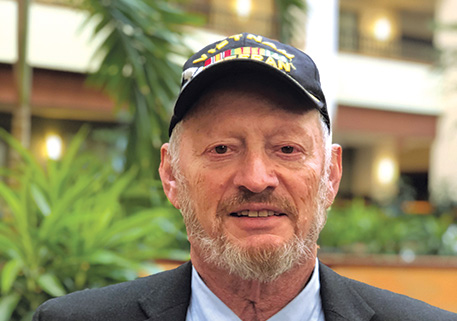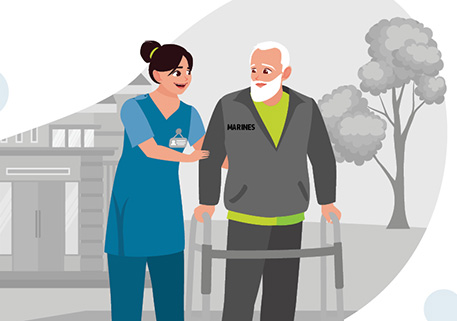 Maria Holloway has been married to Harold, a Navy veteran of Vietnam, for 52 years. But it’s only recently that she, the past DAV Auxiliary Department of Florida commander, has transitioned into a new role—that of a caregiver.
Maria Holloway has been married to Harold, a Navy veteran of Vietnam, for 52 years. But it’s only recently that she, the past DAV Auxiliary Department of Florida commander, has transitioned into a new role—that of a caregiver.
For Holloway, and so many others, this labor of love comes with a sharp learning curve, with many lessons along the way.
“The things I wish I knew earlier when it comes to being a caregiver start with a realization that building your own support system has to start early,” said Holloway. “If it wasn’t for the Auxiliary, I wouldn’t have known about the resources available at the VA.”
Auxiliary membership is a way to find other spouses who are going through the same things and have similar experiences. The Auxiliary can be a valuable resource to build personal friendships and support through good times and bad.
DAV Auxiliary National Commander Lynn Helms Prosser was a caregiver to her two deceased spouses, both of whom were disabled Vietnam veterans. If you sense the veteran you love will need a family member to care for their needs, there is no time to waste creating a plan, Prosser said.
“The Auxiliary can help,” Prosser said. “I have been a caregiver for my two husbands, and the friends and networking I have had through the Auxiliary helped me with love and support beyond measure.”
One crucial part of that plan that too often goes overlooked by caregivers, said Holloway, is how you will care for yourself while tending to the needs of someone else.
“Figure out who you know and trust who could come to give you a brief respite to go spend time with a friend or relative,” said Holloway. “Figuring out what community resources and home health care visits are available will also help you and your loved one to retain your independent lifestyle.”
Holloway advises the loved ones of veterans showing signs of decline to be proactive and prepare.
Many resources exist within the Department of Veterans Affairs, including the toll-free Caregiver Support Line at 1-855-260-3274, available Monday through Friday from 8 a.m. to 10 p.m. and Saturdays from 8 a.m. to 5 p.m. Eastern time. The call center team can answer questions about VA support program services and eligibility, navigate barriers to care, find additional resources and access counseling.
There are also free monthly Caregiver Support Line education calls on various topics pertinent to caregiving, ranging from emotional support to more skill-based information.
The bottom line, said Holloway, is establishing solid relationships with the veteran’s care team as well as other caregivers.
“You can be in the middle of cooking dinner, and all of a sudden you need to help,” Holloway said. “I’ve had to work with the challenges of ensuring our home works well with a wheelchair. You need to think about how to get into the bathrooms. But all of the details will be easier to manage if you develop a relationship with another caregiver.”
Holloway has forged many such relationships with fellow caregivers she has met at the VA.
“A lot of us are starting to have to take care of our spouses,” said Holloway. “A lot of this can fall on your shoulders, but you don’t have to do it alone.”






